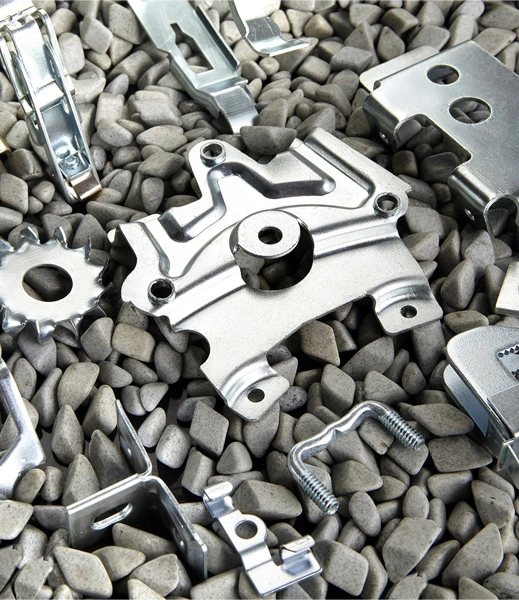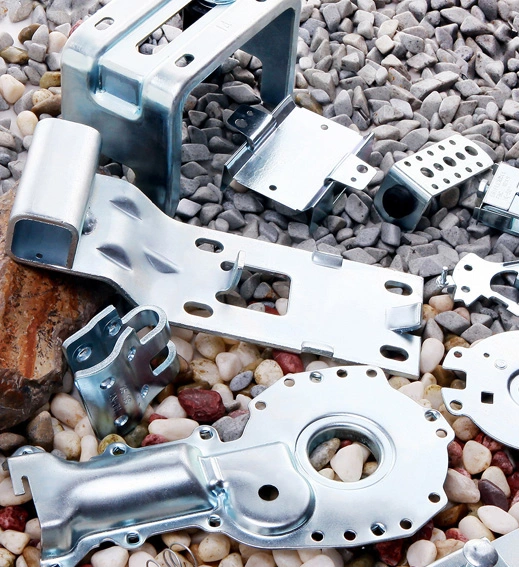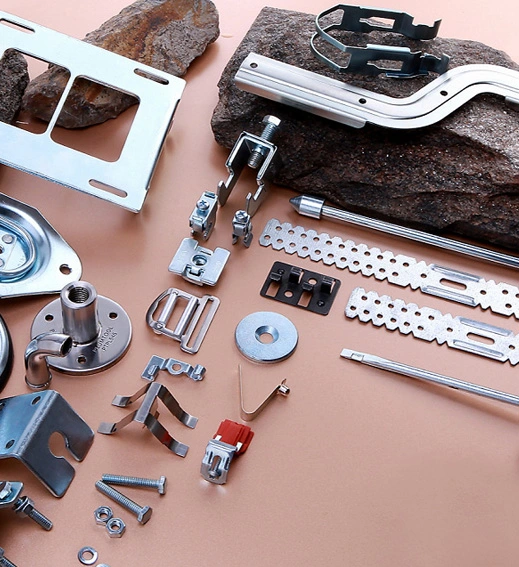
Compound die stamping service is a good choice for medium and big size part and also lower mold cost compared with progressive die stamping. Yixing Technology provides multiple stamping choice including compound stampings services to satisfy customers' different demands.
At Yixing Technology, we provide exceptional compound die stamping services, combining innovation and efficiency to meet diverse production needs. Unlike progressive die stamping, our compound dies integrate two or more feature-forming modules, allowing processes such as blank cutting, stamping, stretching, and deep drawing to be completed in a single stamping cycle.
This advanced mechanical transmission technology ensures precise and consistent results, maintaining exceptional quality stability throughout production. Ideal for small to medium-sized orders with limited budgets, our compound die stamping solutions deliver high efficiency and low labor costs, making us a competitive partner in the manufacturing market.

Compound die stamping uses various metals and alloys to produce high-performance parts with extraordinary precision and repeatability. When selecting metal materials for stamping parts, it is important to consider their compatibility with the metal stamping process and your application.
Below is the short summary of the compound stampings material you can choose from Yixing Technology:
| Material | Grade |
| Carbon steel | S235, S345, SPCC, SPEC, CRS, HRS, DC01, SAPH440 etc |
| Aluminum alloys | AL5052, AL5754, AL6061, AL6063, AL1060 etc |
| Stainless steel | SS201, SS304, SS316, etc |
| Copper | C10100, C11000, C12200, GB/T1, T2, T3 etc |
| Brass | C27200, C36000, C37700, H63, HPb63-3, HPb59-1 etc |
| Cold or hot dip galvanized sheet | SGCC, SECC etc |
| ZINCALUME Steel | DC01+AZ150 |
| Titanium/Tin/Spring steel/Manganese steel etc | / |


Advanced Compound Die Stamping Production Line: At Yixing Technology, we have a professional compound die stamping production line with 10 high-speed punches ranging from 40 tons to 630 tons. All equipment is dedicated to running compound stampings. We have a professional compound stampings technology team that can meet the needs of metal stamping parts in various industries.

Cost-Effective Solutions for Small and Medium-Sized Parts: Compound die stamping is suitable for small and medium sized metal stamping parts. It not only ensures the precision tolerances required for part design, but also has lower manufacturing costs than progressive molds. If you don't know whether progressive die or compound stampings die is more suitable for your project, contact with us and our engineer can help to determine which is the best for projects.

Comprehensive and Value-Added Stamping Services: Yixing Technology provides professional sheet metal fabrication services. We offer a wide range of precision stamping solutions, including mold design and manufacturing, DFM manufacturability report, fast prototype production, product mass production, other value-added service like welding, surface treatment, heat treatment, packaging, and transportation to various parts of the world.











1) Compound die: A mold structure in which a punching machine completes multiple processes such as material cutting and punching in one stroke.
2) Progressive die: Progressive die service is composed of multiple workstations, each of which is sequentially associated to complete different processing tasks. A series of different stamping processes are completed in one stroke of the punching machine.
(1) Compound mold:
1) The workpiece has good coaxiality, a flat surface, and high dimensional accuracy.
2) High production efficiency, not limited by the accuracy of plate shape and size. Sometimes waste corners can also be used for replication.
3) The processing and manufacturing of mold parts is difficult and costly. Stamping and concave molds are easily limited by small wall thickness and are not suitable for certain lower parts with small inner hole spacing and inner hole and edge spacing.
(2) Progressive mold:
1) Progressive die is a type of multi task continuous punching die. In a mold, it can include many processes such as cutting, bending, and deep drawing, with high productivity.
2) Progressive mold operation is more safe.
3) Easy to automate.
4) High speed punching machines can be used for production.
5) It can reduce the area of stamping machines and sites, as well as the transportation of semi-finished products and warehouse occupancy.
6) Parts with high size requirements should not be produced using progressive molds.
1. Not suitable for metal geometries with high complexity.
2. Not suitable for small size part in large quantities.
3. Production speed is not as fast as progressive die.
Yes, our engineers provide expert guidance to determine whether compound die or progressive die stamping is the best choice for your project.



